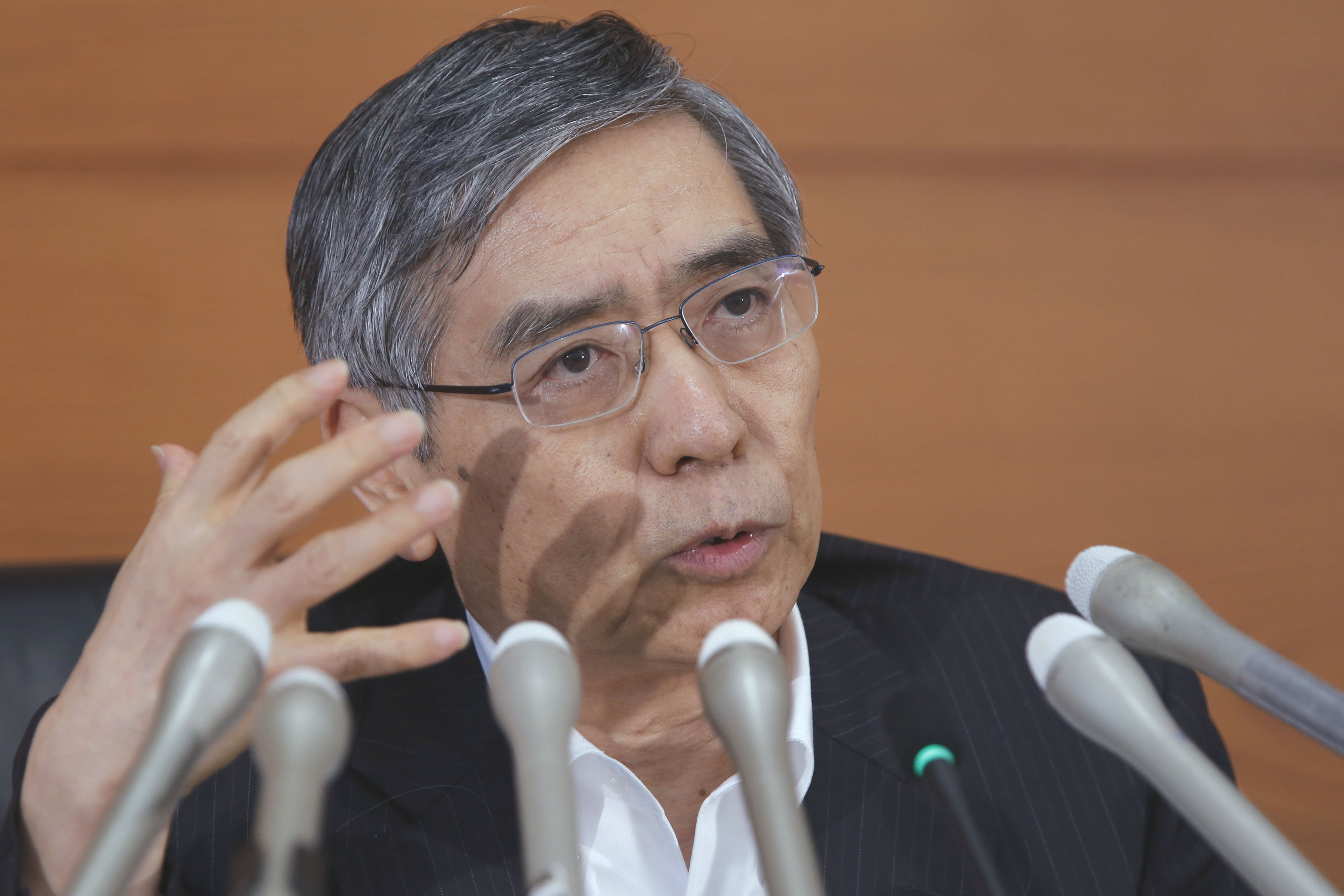Haruhiko Kuroda doesn't wear a wizard's hat when he arrives at Bank of Japan headquarters each morning. Once inside, I do wonder if he dons a cloak, waves a magic wand and concocts mysterious potions.
Kuroda has done something truly supernatural in his five months as governor of the central bank. The more yen he conjures up to produce inflation, the more he mesmerizes markets. Investors are more bewitched by Kuroda than they are by the number 1,000,000,000,000,000. The 15 zeros now needed to express Japan's national debt almost have a dark-arts quality all their own. Yet a week after Japan's IOUs reached the ¥1 quadrillion ($10.28 trillion) mark, yields have actually declined.
What is Kuroda's secret? Ben Bernanke at the Federal Reserve would love to know as he fends off bond vigilantes, that mysterious cast of characters who protest fiscal or monetary policies they deem dangerous. Kuroda is winning bondland's full obedience with two forms of trickery. The first is what economists call "financial repression" — essentially transferring money via monetary policy from citizens to the government. The second is outright monetization of public debt.



















With your current subscription plan you can comment on stories. However, before writing your first comment, please create a display name in the Profile section of your subscriber account page.